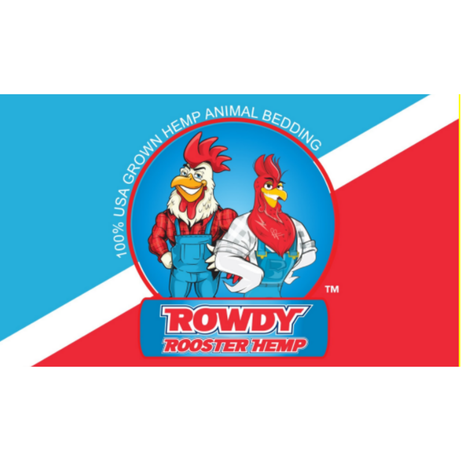
Is Generation Hemp Now A Leader in Pure-Play Hemp Operations for the Industrial Sector?
Previously Published to Benzinga: The following post was written and/or published as a collaboration between Benzinga’s in-house sponsored content team and a financial partner of Benzinga.
A leader in the “Industrial Evolution,” Generation Hemp, Inc. (OTCQB: GENH) is showing the world just what it means to be a pure-play business — especially when it comes to industrial hemp operations. Generation Hemp focuses solely on the practical and industrial use of hemp and its byproducts, ensuring no part of this “wonder plant” goes to waste.
As the hemp industry continues to blossom, Generation Hemp moves ahead to serve and target within the midstream sector, vertically integrating along the supply chain through acquisitions of successful service companies within the hemp sector. With the added goal of implementing green policies and aligning operations with the eco-friendly hemp industry, the company is turning byproducts from their services into green, sustainable consumer goods, which are cost compatible.
As the first result of this green policy goal of utilizing byproducts, Generation Hemp became home to the Rowdy Rooster Hemp animal bedding brand for small animals and pets. It will soon launch its Kentucky Gold hemp animal bedding brand for larger animals that require quantities in bulk.
Who Is Generation Hemp?
Generation Hemp is based in Dallas/Ft. Worth, Texas, but has its primary operations located in Hopkinsville, Kentucky, and Denver, Colorado, including its wholly-owned subsidiary, GENH Halcyon Acquisition, LLC, and real estate services that lease to companies that need seed storage facilities within the industry. This year alone, Halcyon will dry, process, strip and store approximately 11 million pounds of hemp biomass for CBD extraction and animal bedding.
In addition to the desire to make the latter part of his business legacy green, Chairman and CEO Gary Evans began researching the hemp space for new business opportunities. Of course, he quickly learned and recognized the enormous potential that hemp would have to impact industry at large in ways that could drastically reduce the global carbon footprint; but he also saw a need for investment that was not being met.
In order for the hemp industry to truly blossom, it would need substantial new capital in all forms. The problem was that many of the companies that were visible to the investment community also had marijuana operations under their umbrella. This greatly limits a large segment of the public investment community, as they cannot touch companies with marijuana operations due to its illegal status at the national level.
To Evans, the answer was to make the decision to be a pure-play hemp company. To take it one step further, Evans also decided to target fee-based service companies that would be more insulated from commodity price fluctuations in a new industry that would potentially act much like other commodities with pricing volatility. In this, Generation Hemp became one of the first publicly traded U.S. companies, on a U.S. market exchange, that was purely hemp.
The company wants to position itself among the biggest, including Canopy Growth (NASDAQ: CGC)(BATS: WEED), Tilray Inc (NASDAQ: TLRY) and Aurora Cannabis (NASDAQ: ACB), as a pureplay hemp investment option and grow its ability to provide greener alternatives to future generations.
Another point worth mentioning is Generation Hemp’s goal of stewardship in its surrounding communities. After launching the hemp animal bedding line, the company committed to donating its Rowdy Rooster Hemp bedding to a local animal rescue. Ten seconds on TikTok, and anyone would quickly scroll to one of many heartbreaking stories that an animal rescue brings to light. Supplies are always a challenge for rescues and bedding is a supply that is a huge expense. Plus, who is more deserving of the healthiest bedding material than animals who have already suffered too much?
Investing in the Future
The renewed interest in industrial hemp has created a critical need to understand the distinct difference between hemp and marijuana. It’s not every decade that a completely new industry with infinite reach to so many different products is born.
The 2014 and 2018 Farm Bills collectively stripped away the barriers of entry for hemp farming across America. Former President Barack Obama signed the Agricultural Act of 2014, which legitimized the research of industrial hemp and made specific distinctions from marijuana. Both agricultural departments and institutions of higher learning were now free to conduct research within test pilot programs on their own.
The 2018 Farm Bill, signed into law by President Trump, is the first piece of federal legislation to officially remove its Drug Enforcement Administration (“DEA”) Schedule I controlled substance designation and legally reinstate it for industrial and agricultural purposes.
This act also legalized hemp production as an agricultural commodity and allowed it to be removed from a long list of controlled substances.
Industrial hemp has so many uses and purposes — everything from hempcrete, hemp wood, insulation, soil purification, textiles, biofuels, bioplastic, food supplements, and more. It’s more durable than wood, stronger than steel (pound for pound), and greener than plastic and fiberglass. It’s mold, pest, and bacteria-resistant, compostable, biodegradable, and sustainable. The growth and use of hemp can help stop the decimation of rainforests and other tree populations. It can reduce dependency on fossil fuels, and it can significantly reduce harmful wastes that come from the operations and production from all of these.
The question is no longer whether the hemp industry will get a foothold, but a question of how fast it will climb. It doesn’t take an ability to see around corners to see the mound of opportunities in hemp.
[Read More: “Cannabis Investors Should Know the Difference Between Marijuana and Hemp”]
More from Generation Hemp
Gary C. Evans, CEO, and founder of Generation Hemp will be speaking at Texas Hemp Convention on November 20 and 21, where his company is also a sponsor.
To learn more about Generation Hemp or any of its subsidiaries, visit GenHempInc.com, and don’t forget to find them on Facebook or Twitter.
The preceding post was written and/or published as a collaboration between Benzinga’s in-house sponsored content team and a financial partner of Benzinga. Although the piece is not and should not be construed as editorial content, the sponsored content team works to ensure that any and all information contained within is true and accurate to the best of their knowledge and research. This content is for informational purposes only and not intended to be investing advice.
The author owns stock in one or more of the companies listed above.


